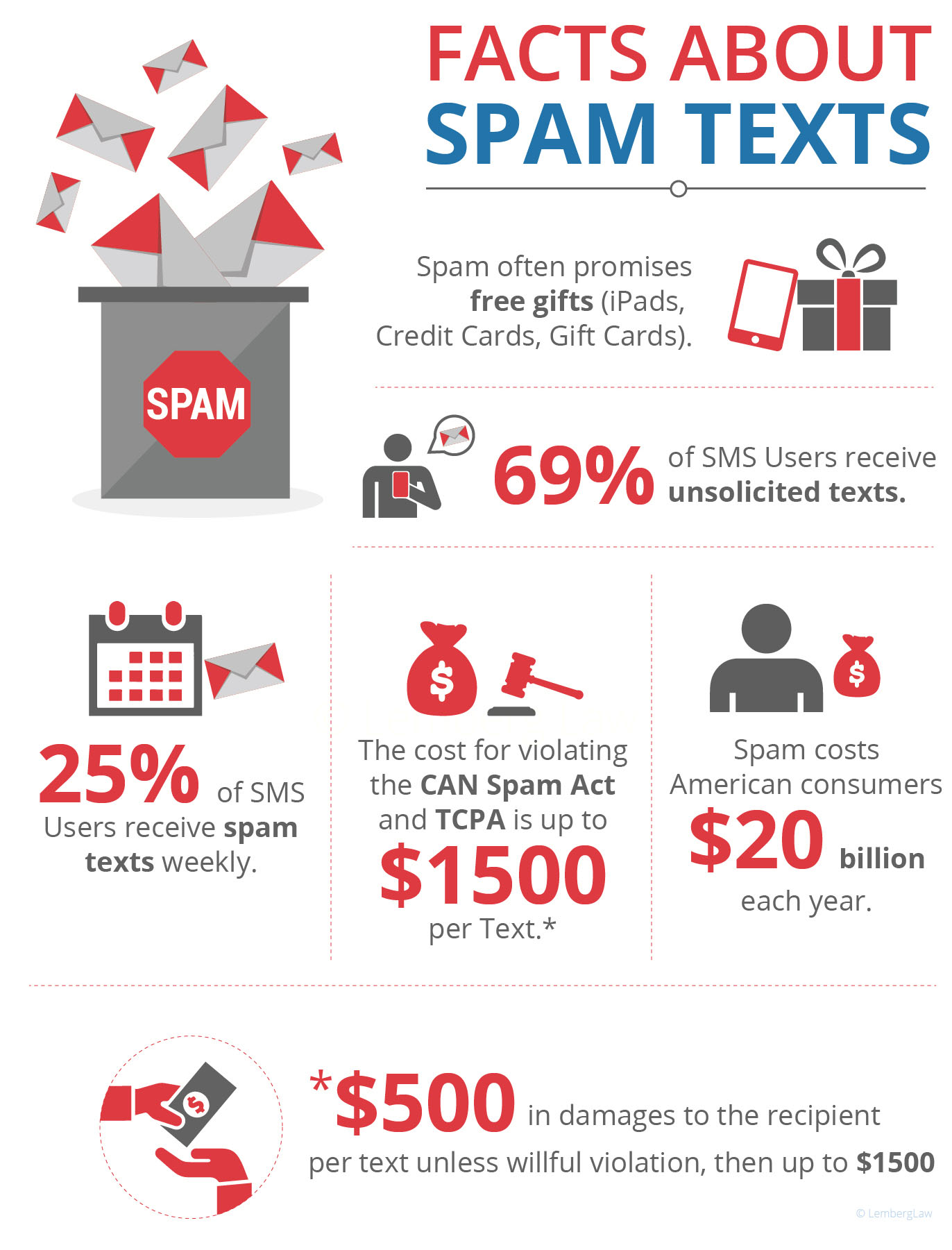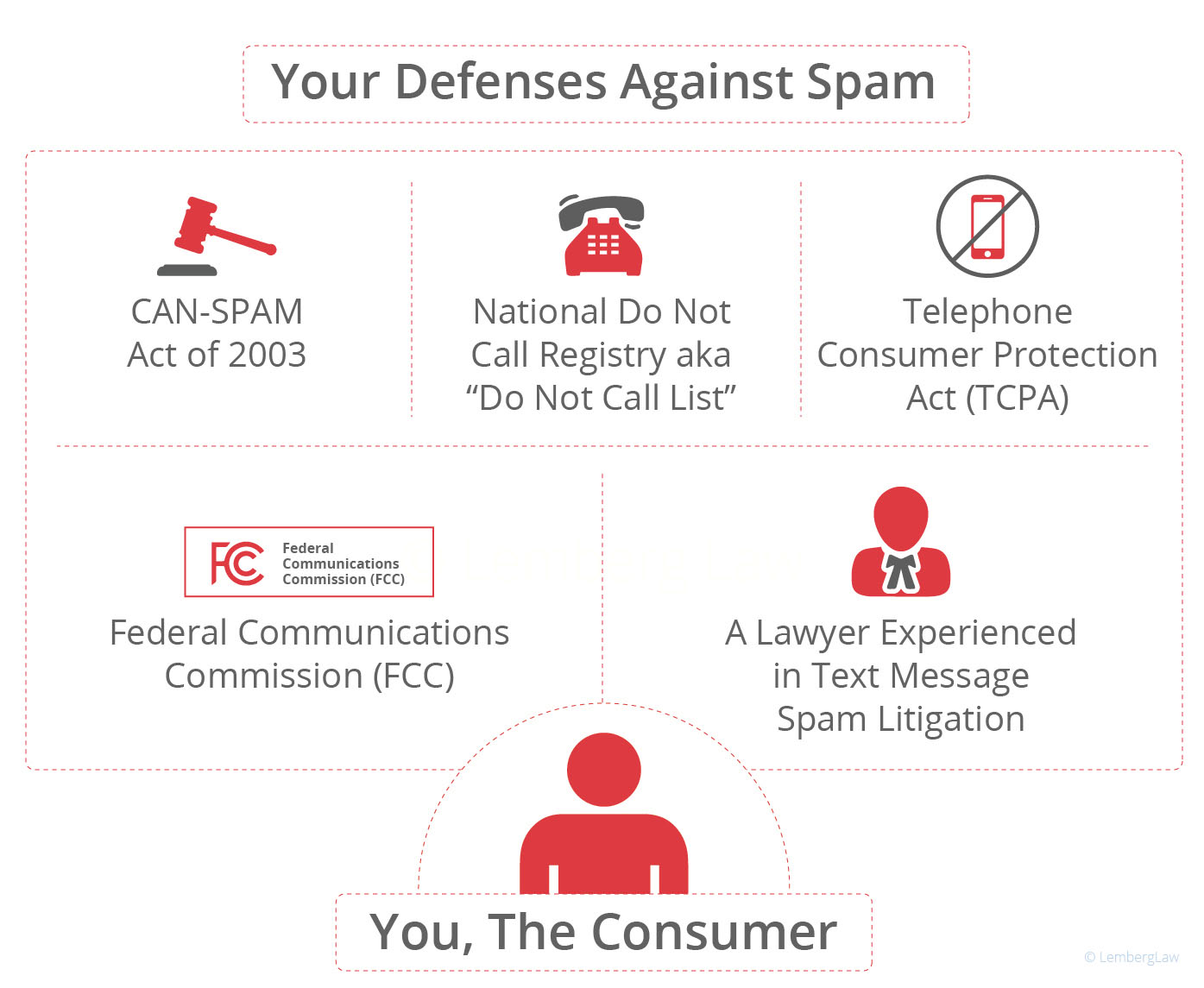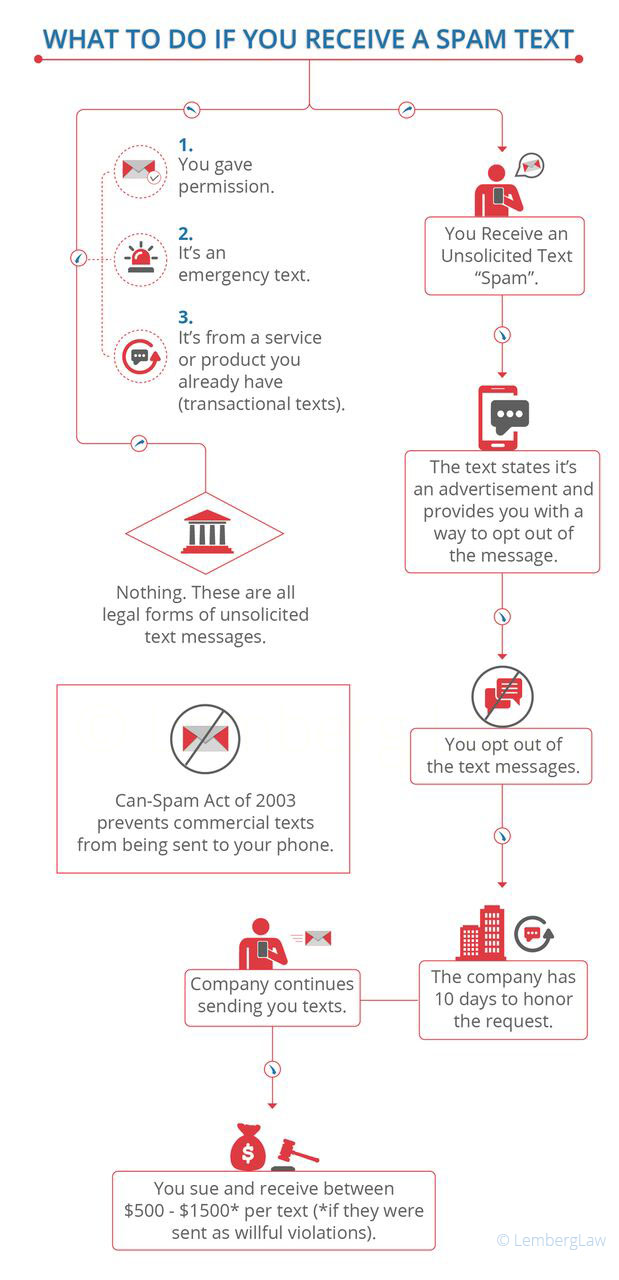Text message spam and unwanted marketing and spam text messages are covered by the Telephone Consumers Protection Act. If you’re being annoyed by spam texts, you should know that you’re protected by federal text spam laws. In 1991, Congress passed the Telephone Consumer Protection Act (TCPA) in an attempt to put an end to annoying intrusions into people’s lives. Over time, this has come to include telemarketing calls, junk faxes, and text message advertising. Another spam law is the CAN-SPAM Act of 2003.
 Does the TCPA cover text messages?
Does the TCPA cover text messages?
The TCPA specifically directs the Federal Communications Commission (FCC) can enact Telephone Consumer Protection Act regulations to prevent text message spam and unwanted marketing and spam text messages. FCC regulations prohibit text messages sent to a cell phone using an autodialer (also known as a robocall). The only exception to the rule is if you’ve given permission for the sender to transmit a text message to you or if it’s an emergency message. This holds true regardless of whether or not you’ve registered your cell phone number with the National Do Not Call Registry.

What is the the CAN-SPAM Act?
The CAN-SPAM Act takes a different route but has essentially the same purpose. The CAN-SPAM Act prohibits commercial text messages from being sent to your cell phone. Commercial texts show up on your cell phone as text messages and advertise or promote a product or service for sale. The CAN-SPAM Act does not include what it terms “transactional or relationship” messages that pertain to a service or product you already have. So, for example, a message delivered to your phone from your home alarm monitoring company regarding your alarm status is not a violation, but a sales message from a random alarm monitoring company could be a violation.
Under the CAN-SPAM Act, commercial texts sent to your cell phone are required to disclose that it is an advertisement, to provide a free and accessible way for you to opt out of receiving future messages, and to include both a valid postal address and return email address. If you opt out, the company has only ten days to honor your request.
The key to both the Telephone Consumer Protection Act and the CAN-SPAM Act is that it requires senders to obtain your consent prior to sending a text to your cell phone.
Understand How to Protect Yourself Against Spam:

For telemarketing and spam text messages that advertise a product or service, the requirement is that the sender obtains your written consent (either physical or electronic).
The CAN-SPAM Act, like the provisions of the Telephone Consumer Protection Act, have different rules for messages from nonprofit organizations, candidates for public office, and the like. Those senders can send text messages to your cell phone with only your verbal permission.

Do You Have a Spam Text Case?
Suing spam texters – and receiving up to $500 per text – is possible if you’ve experienced any one of these situations:
- You received an unwanted commercial text on your wireless device, and you haven’t given permission to the company to send you texts and you don’t have an existing business relationship with that company.
- Your mobile device is registered on the national Do-Not-Call list.
- The text you received was sent by an autodialer.
- You have nothing to lose and everything to gain.

How Much Will It Cost me To Hire a Lawyer Stop Spam Texting?
When Lemberg Law decides to represent you, you don’t have to pay us a dime out of pocket. In fact, we don’t get paid at all unless we win. That means there’s zero risk to you when we take your case. We pledge to fight for your rights and get you the justice you deserve.
Lemberg Law has extensive experience in text message spam litigation, including a spam text case against a well-known Burger chain and settled the case against Rita’s Italian Ices.
If you believe a company has violated text spam laws and regulations, contact us for a free case evaluation. Use our online form or call us at 475-277-2200.
